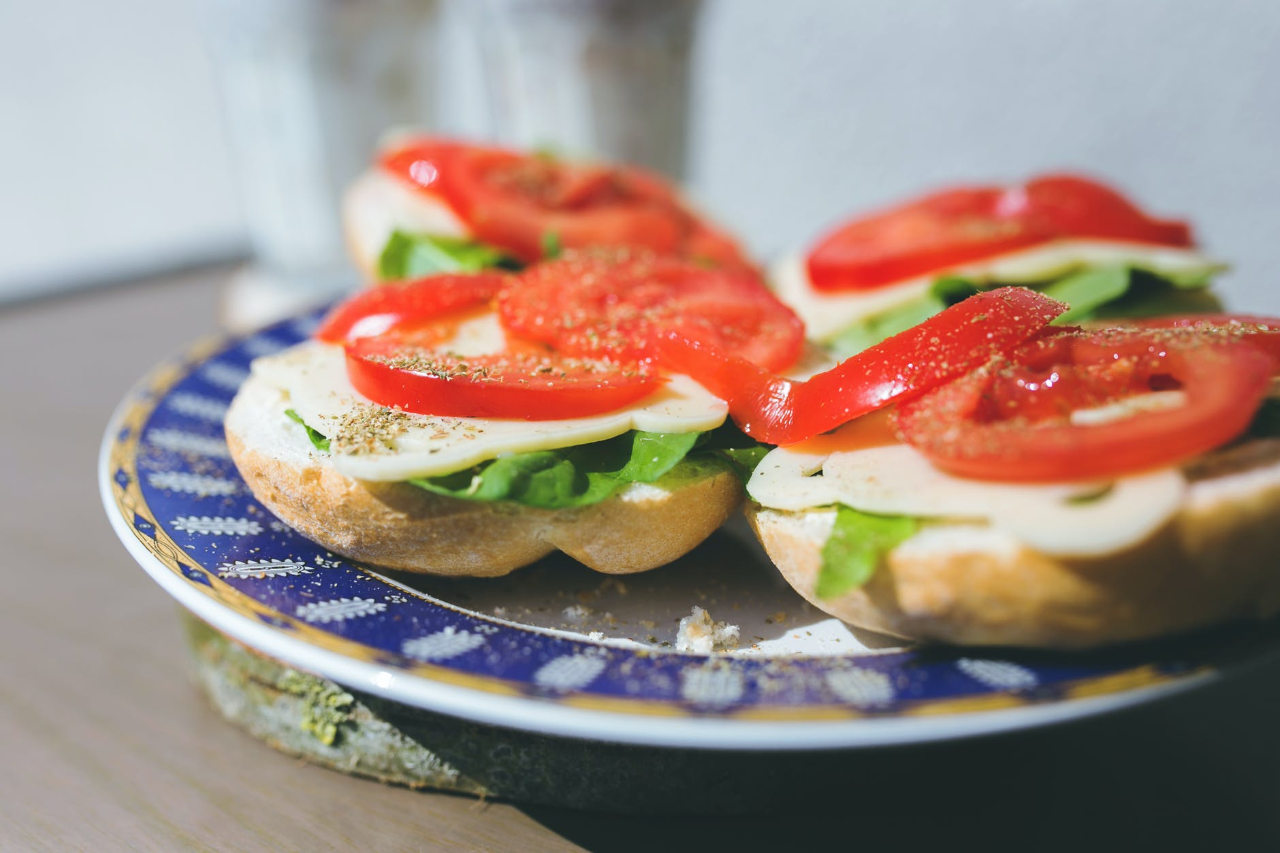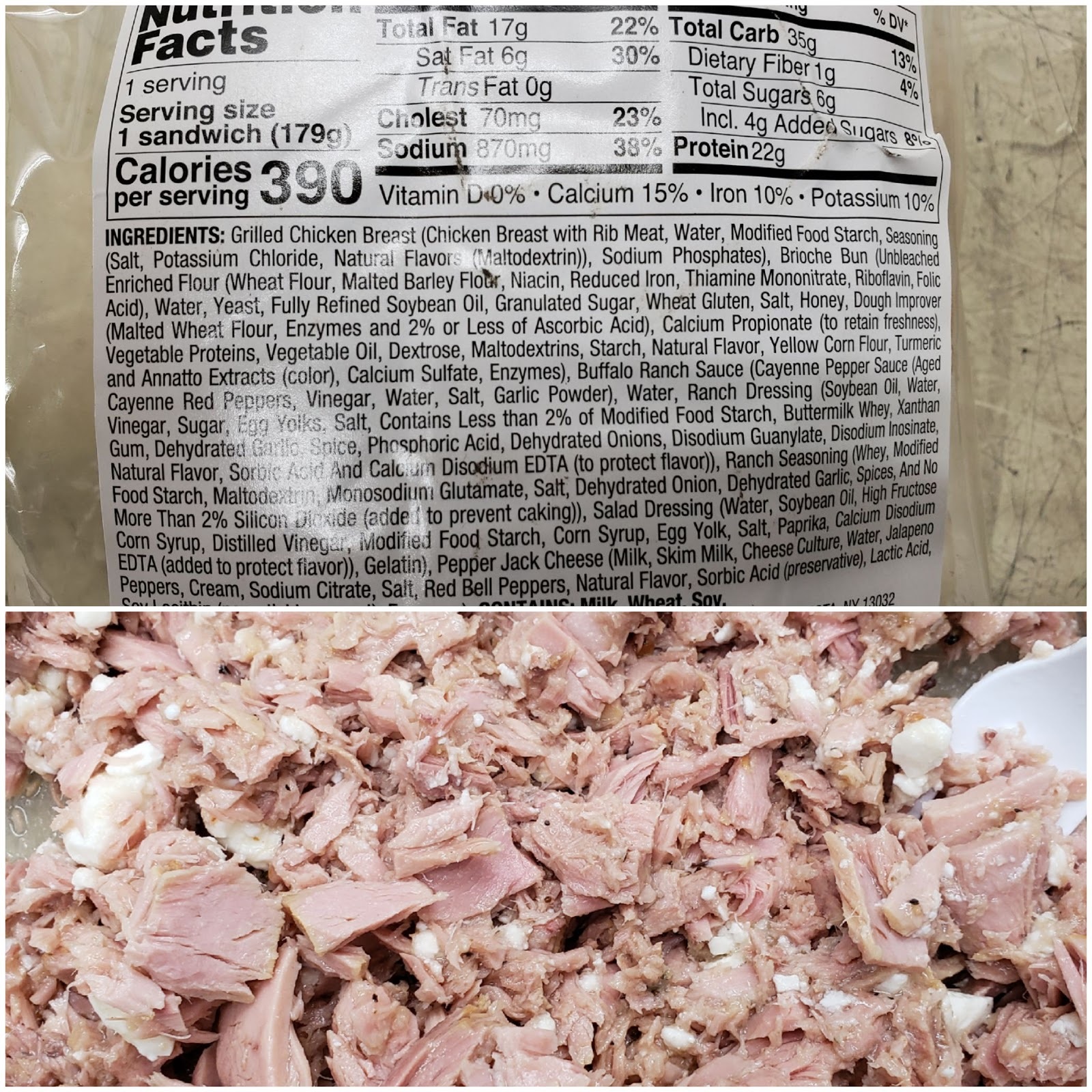
Take a look at the picture below. It’s not that hard to spot a difference in what’s going on. Top, we have a buffalo chicken sandwich from a vending machine, and below we see tuna with some light seasoning and fat-free feta cheese to zazz it up. I already know what you’re saying, “I know I know, Heath, make your own food, blah blah blah.” Absolutely – but that’s only partially the point here, but anyone can tell you that. You’ve probably scrolled and/or like a post about it on social media, just before reading this. You even have some meals you have sitting at home waiting to be cooked up and ready to go for the workday. But something happened…you woke up late, you didn’t make enough, or it’s sitting on the darn counter and you’re already on the road!

Well, now what?
The vending machine comes to the “rescue” for breakfast, or lunch, or mid-day a snack or worse, all three! You’re saying, “it can’t be that bad, just a few extra calories, I’ll have to run off.” Well, we can say that, but what is the main concern here, it’s not just that you’re eating food from a vending machine, it’s the nutritional value that is at stake. Just look at that ingredient list!?
You may have satisfied your hunger for the moment with fillers and preservatives just so the sandwich has a shelf life. You’re not going to absorb much from this from a nutrient standpoint, and what else? Your feeling of being full (satiety) is going to be short-lived. Can you guess the ingredient list in the tuna? I can tell you it’s a lot shorter than our buffalo chicken with sorbic acid and calcium disodium flavor preserve. The nutritional value you put into your body is the key point here.
According to a food business report from the Washington Post October 2019, there are 5 million vending machines in the USA, this includes places or work, and schools.
This is a $25 billion industry. This is feeding into the 2019 report from BRFSS (Behavioral Risk Factor Surveillance System) that shows the obesity rate in America exceeds 30% on average across 51 states. I am not saying that this is the main cause of obesity, but it doesn’t help. The National Automatic Merchandising Association is working on offering more healthy alternatives.
Though that relies on employers that fund the machines in the workplace. You can only imagine what healthier choices in a vending machine would cost if you’re paying $3 for a cheeseburger now. Unfortunately, the workforce won’t be too happy having to dump more hard-earned cash into these machines that help them get through the day. The “pros” that vending machine companies like to flaunt is that the machines keep employees within good productivity and morale is high. Well of course, we all love a little snack. But to rely on such products is what you as an individual need to reduce. The machines won’t go away and the value they offer won’t get any better than what you can provide yourself, making your own meals.
As a fitness and nutrition coach, the clients I have had the pleasure of working with, the majority of them work in a fast-paced environment ie nurses, EMTs, and teachers. Their biggest challenge was getting in the proper food they needed to fuel the day all while hitting the goals that they have invested in as a client. Do you have to be in that criteria to read this? Not at all, there are plenty of people who also have a sedentary work lifestyle to which the snack machines are the go-to, just out of boredom.
This is where we need to have self-awareness of our own eating habits to avoid the grief of going to the machine.
When was the last time you used one full of excitement? I bet most of the time you walk up to it with a deep sigh as you pop in the coins or swipe your card.
Setting aside minimal time to make meals for work will eventually turn into a habit. The meals where you know your chicken is chicken, a sauce isn’t loaded with sodium, and full of actual nutrients your body needs. There is a quote out in the fitness world, “a calorie is a calorie.” Abso-freaking-lutely not! 250 kcal’s of a chocolate bar and 250 kcal’s of steak are worlds apart. Our bodies rely on healthy, carbs, fats, proteins, along with vitamins and minerals that we get from whole foods. We cannot function properly on processed food. Think of it as getting an oil change for your car. You can get the cheap store brand and your car will go from point A to point B. But throw some premium brand and you will get better performance results overall.
If you haven’t tried making your own meals before and the sound of trying to make multiple meals for the day or week is too much, start smaller. If having lunch ready is easy, but later on you need something for some energy or just to feed that hunger, bring something small and easy like fruit, or a snack-size amount of seeds or nuts. There are multiple ways to go about this. You can find those if you just step back and realize how much you rely on grabbing something from the machine.
Let’s go over a few ways to get a handle on our vending spree:
- Have less cash on hand during work hours
- Eat something before leaving for work
- Pack meals that don’t need to be heated or need utensils
- Have some light snacks on hand that you can put at your workstation or on a desk
- Freeze a shake the night before and in an hour or two; it will be thawed just enough to enjoy at work
- Prepare multiple meals for the week
- If you have no backup, avoid the vending machine and go grab some water; you could just be bored
- Strategic intermittent fasting that fits with your work schedule
All these small steps will compound with benefits. You’re not eating junk, you’re feeling better, you’re not rushing, and saving money! Let your kitchen be your source of food choices. If you have trouble with knowing how to build yourself there, reach out to a nutrition coach, registered nutritionist, or registered dietitian. Absorb it, apply it, then dominate it!
Heath Marshall
ISSA Certified
Fitness Coach – Ironjunkie Fitness
Sports Nutrition Specialist
Nutrition Coach



